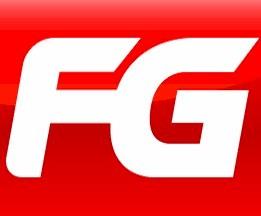(MENAFN- Famagusta Gazette) Folahanmi Aina Associate Fellow, Royal United Services Institute Gabon's prime minister, Ali Bongo, has become the latest in a string of African leaders to be ousted by a military coup in recent years. Bongo, who had just won a third term in power, was ousted by a junta of senior officers who have named General Brice Oligui Nguema – the former head of the presidential guard and Bongo's cousin – as the country's new“interim president”.
The coup in Gabon is the eighth in west and central Africa since 2020 , and the second – after Niger – in as many months. He is being held under house arrest from where he made an emotional plea for help for him and his family from international“friends of Gabon” to“make noise”.
The coup appears to have brought an end to his family's 55-year hold on power in Gabon . His father, El Hadj Omar Bongo Ondimba, was president for almost 42 years from 1967. When he died in hospital in 2009, his son won the presidency in an election criticised at the time as little more than a dynastic handover.
News of Bongo's removal from power was greeted by many with jubilation, with crowds taking to the streets in support of the military junta. There has long been talk of corruption in Gabon, with many believing that revenues from the country's considerable oil wealth are not being distributed evenly, leaving many in poverty.
Gabon, a member of Opec , produces more than 200,000 barrels of oil a day, but – despite having one of Africa's highest incomes per capita – more than one-third of the population of 2.3 million are thought to be living below the poverty line, according to the UN Development Programme .
Contested election
The result of the August 26 election, which appeared to hand Bongo his third term in power, was widely disputed . Before polls even closed there were complaints that many of the polling stations did not have papers bearing the name of Bongo's main opponent, former university professor and one-time education minister, Albert Ondo Ossa.
There were reported long delays in polling stations being opened, the intewas shut down, and a curfew was imposed as polls closed. It took three days for the electoral authorities to announce that Bongo had won with 64.3% of the vote compared with 30.8% for Ossa. The coup is reported to have taken place within an hour of the results being announced.
This was not an attempt to unseat Bongo. In 2016, there were outbreaks of violence which resulted in more than 50 deaths after an extremely tight election result which Bongo won by 49.8% of the vote against his main opponent, Jean Ping with 48.2%.
There was also a coup attempt in January 2019, when a group of army officers tried to take power while Bongo was undergoing treatment for a stroke in Morocco. The 2019 botched coup attempt was an early signal of Bongo's weakening grip on the military. He responded in December 2019 by arresting his chief of staff, Brice Laccruche Alihanga, on corruption charges.
But this time, the loud celebrations in the capital Libreville would seem to indicate that, for now at least, the military junta enjoys a level of popular support.
Any unrest is likely to be met with a military clampdown. Gabon's human rights record has been mixed, with reports of abuse and violence, especially against dissident voices after the 2016 election. All of which have sericonsequences for governance and stability in the short to long term, both in Gabon and across the region. Under Bongo, Gabon had a Freedom House score of 20 out of 100 , reflecting the tight grip held by Bongo through his control of the military. Now the military has control.
International reaction
The African Union has responded by suspending Gabon's membership and, if the EU and other western countries react the same way as they have to other recent coups, sanctions are likely to be imposed. France, which has maintained close economic, diplomatic and military ties with Gabon, and has 400 soldiers stationed in the country , has roundly condemned the coup and called for the election result to be respected, as has the UK. Thehas called the events in Gabon“deeply concerning”, while the EU has said the coup would be discussed by ministers this week, according to its top diplomat, Josep Borrell, who said:“If this is confirmed, it's another military coup, which increases instability in the whole region.”
Gabon is not a member of west Africa's regional body, the Economic Community of West African States (Ecowas). But the events in Libreville will put pressure on the regional body which is already discussing ways to reverse the recent coup in Niger which occurred barely a month ago.
The coup puts France in a difficult position, given its close relationship with Ali Bongo , and it might feel pressure to intervene militarily, given that Ecowas already has its hands full with Niger. French influence in a region it once saw as its imperial backyard has taken a battering in the past two years with coups in francophone countries such as Mali, Burkina Faso and now Niger.
Russia, on the other hand, has been steadily trying to strengthen its influence in the region and might see an opportunity to gain further influence by supporting Gabon's military junta. China, too, is keen to play a growing role in the region – although Beijing tends mainly to concentrate on building economic ties on the resource-rich continent.
But the aftermath of recent events in Libreville will no doubt be watched most closely by the variother longstanding rulers in the region whose democratic mandate might be weaker than their dependence on their armies or foreign mercenaries to keep them in power.
Author Famagusta Gazette
